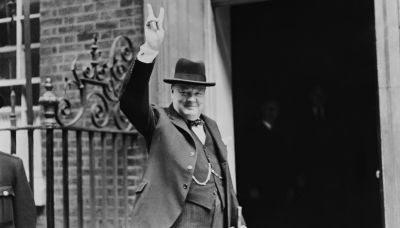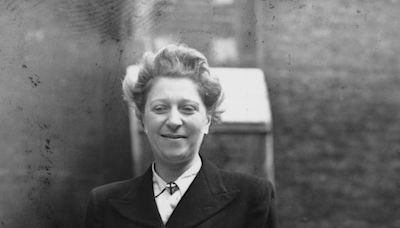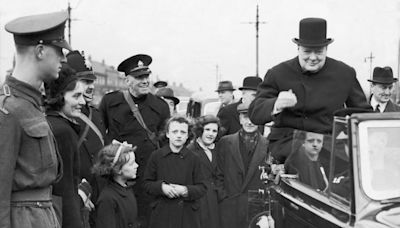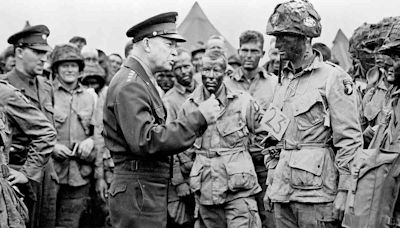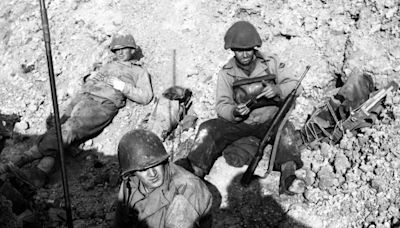Search results
Winston Churchill. Sir Winston Leonard Spencer Churchill [a] (30 November 1874 – 24 January 1965) was a British statesman, soldier, and writer who twice served as Prime Minister of the United Kingdom, from 1940 to 1945 during the Second World War, and again from 1951 to 1955. Apart from two years between 1922 and 1924, he was a Member of ...
- Clementine Churchill
Clementine Ogilvy Spencer-Churchill, Baroness...
- Descendants of Winston Churchill
Sir Winston, his only son Randolph, and grandson Winston....
- Winston Churchill (Disambiguation)
Other people. Winston Churchill (Cavalier), English soldier,...
- Diana Churchill
Diana Spencer Churchill (11 July 1909 – 20 October 1963) was...
- Lord Randolph Churchill
Lord Randolph Henry Spencer-Churchill (13 February 1849 – 24...
- Anthony Eden
Prime Minister: Winston Churchill: Preceded by: Stafford...
- Sarah Churchill
Sarah Churchill was born in London, the second daughter of...
- Clement Attlee
Prime Minister: Winston Churchill: Preceded by: Kingsley...
- Clementine Churchill
- Early Life
- Battles and Books
- Churchill: “Crossing The Chamber”
- Churchill and Gallipoli
- Churchill Between The Wars
- Churchill: The “British Bulldog”
- The Iron Curtain
Winston Churchill came from a long line of English aristocrat-politicians. His father, Lord Randolph Churchill, was descended from the First Duke of Marlborough and was himself a well-known figure in Tory politics in the 1870s and 1880s. His mother, born Jennie Jerome, was an American heiress whose father was a stock speculator and part-owner of Th...
After he left Sandhurst, Churchill traveled all around the British Empire as a soldier and as a journalist. In 1896, he went to India; his first book, published in 1898, was an account of his experiences in India’s Northwest Frontier Province. In 1899, the London Morning Post sent him to cover the Boer War in South Africa, but he was captured by en...
That same year, Winston Churchill joined the House of Commons as a Conservative. Four years later, he “crossed the chamber” and became a Liberal. His work on behalf of progressive social reforms such as an eight-hour workday, a government-mandated minimum wage, a state-run labor exchange for unemployed workers and a system of public health insuranc...
In 1911, Churchill turned his attention away from domestic politics when he became the First Lord of the Admiralty (akin to the Secretary of the Navy in the U.S.). Noting that Germany was growing more and more bellicose, Churchill began to prepare Great Britain for war: He established the Royal Naval Air Service, modernized the British fleet and he...
During the 1920s and 1930s, Churchill bounced from government job to government job, and in 1924 he rejoined the Conservatives. Especially after the Nazis came to power in 1933, Churchill spent a great deal of time warning his countrymen about the perils of German nationalism, but Britons were weary of war and reluctant to get involved in internati...
“I have nothing to offer but blood, toil, tears and sweat,” Churchill told the House of Commons in his first speech as prime minister. “We have before us many, many long months of struggle and of suffering. You ask, what is our policy? I can say: It is to wage war, by sea, land and air, with all our might and with all the strength that God can give...
The now-former prime minister spent the next several years warning Britons and Americans about the dangers of Soviet expansionism. In a speech in Fulton, Missouri, in 1946, for example, Churchill declared that an anti-democratic “Iron Curtain,” “a growing challenge and peril to Christian civilization,” had descended across Europe. Churchill’s speec...
Feb 9, 2010 · Winston Churchill, First Lord of the Admiralty, is called to replace Neville Chamberlain as British prime minister following the latter’s resignation after losing a confidence vote in the House ...
- Missy Sullivan
People also ask
Who was Winston Churchill?
When did Winston Churchill become Prime Minister?
What does Winston Churchill stand for?
Why was Parliament important to Winston Churchill?
2 days ago · Winston Churchill (born November 30, 1874, Blenheim Palace, Oxfordshire, England—died January 24, 1965, London) was a British statesman, orator, and author who as prime minister (1940–45, 1951–55) rallied the British people during World War II and led his country from the brink of defeat to victory. After a sensational rise to prominence ...
- As prime minister (1940–45) during most of World War II, Winston Churchill rallied the British people and led the country from the brink of defeat...
- Through his father, Lord Randolph Churchill, a Tory politician, Winston was directly descended from John Churchill, 1st duke of Marlborough, the he...
- At Harrow School, Winston Churchill’s conspicuously poor academic record provoked his father’s decision to enter him into an army career. On his th...
The Battle of Britain permanently stalled the planned German invasion. The appointment of Winston Churchill in May 1940 probably saved Britain and ultimately laid the foundation for the Allied victory. Conclusion. The appointment of Winston Churchill, as Prime Minister was a remarkable turn of events.
When studying the Second World War, most people focus on the great leaders who helped turn the tide against Nazi Germany. The most obvious person learnt about first is Britain's Prime Minister: Winston Churchill, with a focus on his inspiring speeches during June 1940. However, Churchill's rise to prominence at the beginning of the war was very unexpected. He had once a marginalized voice in ...
For him, Parliament was an instrument of public persuasion on which he played like a master and from which he drew strength and comfort. Listen Winston Churchill delivering his first speech as the Prime Minister, 1940. Winston Churchill addressing Parliament in his first speech as prime minister, May 13, 1940. Running time, 56 seconds; 3.5 MB.

